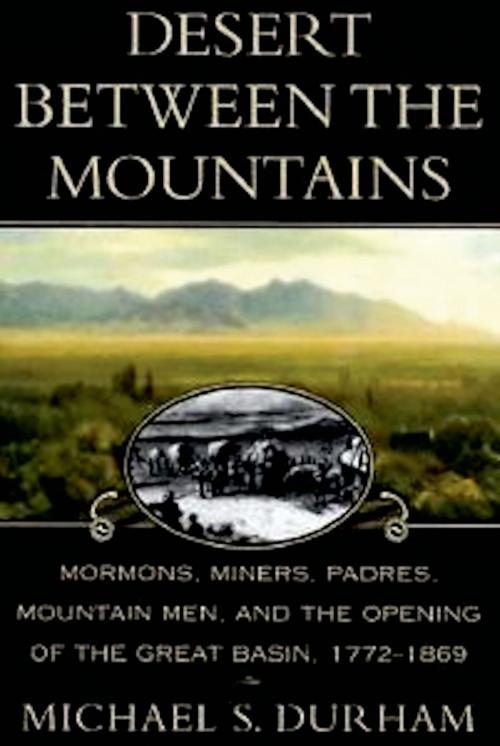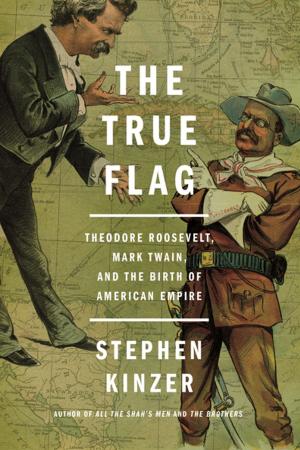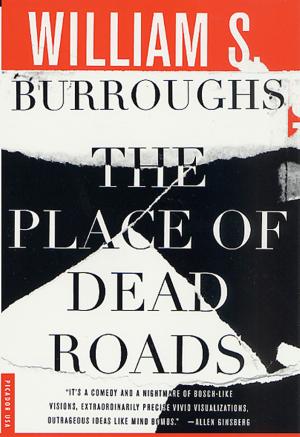Desert Between the Mountains
Mormons, Miners, Padres, Mountain Men, and the Opening of the Great Basin, 1772-1869
Nonfiction, History, Americas, United States| Author: | Michael S. Durham | ISBN: | 9781466863217 |
| Publisher: | Henry Holt and Co. | Publication: | January 28, 2014 |
| Imprint: | Henry Holt and Co. | Language: | English |
| Author: | Michael S. Durham |
| ISBN: | 9781466863217 |
| Publisher: | Henry Holt and Co. |
| Publication: | January 28, 2014 |
| Imprint: | Henry Holt and Co. |
| Language: | English |
On July 24, 1847, a band of Mormon pioneers descended into the Salt Lake Valley. Having crossed the Great Plains and hauled their wagons over the Rocky Mountains, they believed that their long search for a permanent home had finally come to an end. The valley was an arid and inhospitable place, but to them it was Zion.
They settled on the edge of an immense, uncharted, and self-contained region covering over 220,000 square miles, or one-fifteenth of the area of the United States. The early-nineteenth-century explorer John Charles Fremont had just aptly named this region the Great Basin because its lakes and rivers have no outlet to the sea: its waters course down the mountains and disappear into the desert. Here, in a land that few others wanted, the Mormons hoped to live and worship in peace.
Within ten years of their arrival, the Mormons had established nineteen communities, extending all the way to San Diego, California--a remarkable feat of colonization and one of the great successes of the westward movement. Desert Between the Mountains is by no means, however, a story of splendid and stoic isolation. Beginning with an explanation of the Great Basin's unique and enigmatic topography, Michael S. Durham delineates the region as a crucible for a complex and exciting narrative history. Tales of nomadic Indian tribes, Spanish ecclesiastics, intrepid furtrappers, and adventurous early explorers are brilliantly and thoroughly chronicled. Moreover, Durham depicts the Mormon way of life under the constant strain from its interaction with miners, soldiers, mountain men, the Pony Express, railroad builders, federal officials, and an assortment of other so-called Gentiles.
Durham vigorously explores the dynamics of this important chapter of American history, capturing its epic sweep, its near biblical mayhem, and its unforgettable characters in an illuminating and provocative account. Desert Between the Mountains concludes with the joining of the transcontinental railroad at Promontory, Utah, in 1869, an event that marked the end of the pioneer era. This is a dramatic, multifaceted, and definitive study of the Great Basin, demonstrating, for the first time, that it is a region unified in its history as well as its geography--that today includes all of Nevada, most of Utah, and parts of five other surrounding states.
On July 24, 1847, a band of Mormon pioneers descended into the Salt Lake Valley. Having crossed the Great Plains and hauled their wagons over the Rocky Mountains, they believed that their long search for a permanent home had finally come to an end. The valley was an arid and inhospitable place, but to them it was Zion.
They settled on the edge of an immense, uncharted, and self-contained region covering over 220,000 square miles, or one-fifteenth of the area of the United States. The early-nineteenth-century explorer John Charles Fremont had just aptly named this region the Great Basin because its lakes and rivers have no outlet to the sea: its waters course down the mountains and disappear into the desert. Here, in a land that few others wanted, the Mormons hoped to live and worship in peace.
Within ten years of their arrival, the Mormons had established nineteen communities, extending all the way to San Diego, California--a remarkable feat of colonization and one of the great successes of the westward movement. Desert Between the Mountains is by no means, however, a story of splendid and stoic isolation. Beginning with an explanation of the Great Basin's unique and enigmatic topography, Michael S. Durham delineates the region as a crucible for a complex and exciting narrative history. Tales of nomadic Indian tribes, Spanish ecclesiastics, intrepid furtrappers, and adventurous early explorers are brilliantly and thoroughly chronicled. Moreover, Durham depicts the Mormon way of life under the constant strain from its interaction with miners, soldiers, mountain men, the Pony Express, railroad builders, federal officials, and an assortment of other so-called Gentiles.
Durham vigorously explores the dynamics of this important chapter of American history, capturing its epic sweep, its near biblical mayhem, and its unforgettable characters in an illuminating and provocative account. Desert Between the Mountains concludes with the joining of the transcontinental railroad at Promontory, Utah, in 1869, an event that marked the end of the pioneer era. This is a dramatic, multifaceted, and definitive study of the Great Basin, demonstrating, for the first time, that it is a region unified in its history as well as its geography--that today includes all of Nevada, most of Utah, and parts of five other surrounding states.















